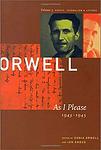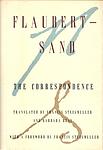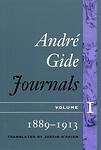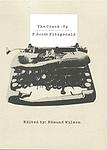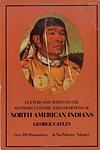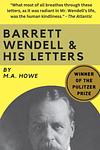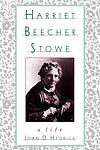The Greatest "Nonfiction, Correspondence" Books of All Time
Click to learn how this list is calculated.
This list represents a comprehensive and trusted collection of the greatest books. Developed through a specialized algorithm, it brings together 300 'best of' book lists to form a definitive guide to the world's most acclaimed books. For those interested in how these books are chosen, additional details can be found on the rankings page.
Genres
The category of "Correspondence" in books refers to a collection of written exchanges between two or more individuals, typically in the form of letters, emails, or other forms of written communication. These books often provide a unique insight into the personal lives, thoughts, and experiences of the correspondents, and can cover a wide range of topics such as love, politics, philosophy, and more. They offer a glimpse into the art of letter writing and the power of written communication to connect people across time and distance.
Countries
Date Range
Reading Statistics
Click the button below to see how many of these books you've read!
Download
If you're interested in downloading this list as a CSV file for use in a spreadsheet application, you can easily do so by clicking the button below. Please note that to ensure a manageable file size and faster download, the CSV will include details for only the first 500 books.
Download-
1. Essays by Michel de Montaigne
This collection of essays explores a wide range of topics such as solitude, cannibals, the power of the imagination, the education of children, and the nature of friendship. The author employs a unique and personal approach to philosophy, using anecdotes and personal reflections to illustrate his points. The essays provide a profound insight into human nature and condition, and are considered a significant contribution to both literature and philosophy.
-
2. The Confessions of Jean-Jacques Rousseau by Jean-Jacques Rousseau
"The Confessions of Jean-Jacques Rousseau" is an autobiographical work by a prominent philosopher of the Enlightenment era, who candidly shares his life story, from his humble beginnings in Geneva to his later years in exile. The book delves into his personal struggles, his intellectual journey, and his relationships, all while exploring his philosophical ideas on education, politics, and morality. The author's introspective narrative provides a unique perspective on his life and times, making it a seminal work in the history of autobiography.
-
3. Homage to Catalonia by George Orwell
The book is a personal account of the author's experiences during the Spanish Civil War, specifically his time with the POUM (Partit Obrer d'Unificació Marxista) militia in Catalonia. He provides an in-depth look at the social revolution that took place, the daily life of a soldier, the political infighting and betrayals among the Republican factions, and his eventual disillusionment with the cause he initially supported. The book is both a war memoir and a detailed analysis of a complex political situation.
-
4. Moveable Feast by Ernest Hemingway
This memoir offers a glimpse into the life of a young American writer living in Paris during the 1920s. The book is filled with personal anecdotes and observations about his life and experiences, including his relationships with other expatriate writers and artists of the Lost Generation. The focus is on the joy of life, the art of writing, and the struggle of a writer. The book also explores the author's love for the city of Paris, which he refers to as a "moveable feast".
-
5. The Autobiography of Benjamin Franklin by Benjamin Franklin
This book is an autobiography of one of America's founding fathers, detailing his life from childhood to adulthood. The author shares his journey from humble beginnings as a printer's apprentice to becoming a successful inventor, writer, businessman, and statesman. The book provides an insight into his thoughts and philosophies on various subjects such as education, self-improvement, and public service, offering a unique look at the early American history through his eyes.
-
6. Collected Essays of George Orwell by George Orwell
This book is a compilation of essays by a renowned author, known for his sharp wit and critical eye. It covers a wide range of topics, from politics and language to literature and culture. The author's insightful and often provocative viewpoints provide a unique perspective on the world, challenging readers to question their own beliefs and assumptions. His straightforward writing style and keen observations make these essays as relevant today as when they were first published.
-
7. Reflections on the Revolution in France by Edmund Burke
This book is a political pamphlet written in the 18th century, where the author criticizes the French Revolution, arguing that it has gone too far in its quest for radical change. He asserts that the revolutionaries, in their rejection of tradition and their embrace of abstract notions of liberty and equality, have overlooked the complexities of real social and political life. The author advocates for gradual, prudent reform rather than sudden, violent change and emphasizes the importance of tradition and inherited institutions.
-
8. De Profundis by Oscar Wilde
"De Profundis" is a lengthy letter written by a man during his imprisonment for gross indecency, reflecting on his past life and experiences. The letter is addressed to his former lover, and through it, he expresses his feelings of regret, despair, and hope. The man discusses his spiritual journey during incarceration, his newfound understanding of suffering, and his changing views on art and morality. The work is a profound exploration of love, forgiveness, redemption, and the human spirit's resilience.
-
9. The George Sand-Gustave Flaubert Letters by Gustave Flaubert
This book is a compilation of the personal correspondence between two of the most prominent French literary figures of the 19th century. Their letters offer an intimate look into their lives, thoughts, and the deep friendship they shared. The exchange covers a wide range of topics, including their literary works, their critiques of each other's work, their views on contemporary society, politics, and culture, as well as their personal joys, sorrows, and struggles.
-
10. The Habit of Being by Flannery O'Connor
"The Habit of Being" is a collection of personal correspondence by a renowned southern writer, offering a profound insight into her private life, thoughts, and creative processes. These letters, written over a span of two decades, reveal her struggle with lupus, her strong Catholic faith, her sharp wit, and her dedication to writing. The book also provides a glimpse of her relationships with literary contemporaries and her insightful thoughts on contemporary issues, literature, and religion.
-
11. Journals: 1889-1913 by André Gide
"Journals: 1889-1913" is a compilation of personal entries by a prominent French author, written over a span of 24 years. The journals offer a deep insight into the author's thoughts, emotions, and experiences, providing a unique window into his personal life and his creative process. The entries also reflect on the social, political, and cultural events of the time, making the journals not only a personal memoir but also a historical document of late 19th and early 20th century France.
-
12. The Journal of Jules Renard by Jules Renard
"The Journal of Jules Renard" is a collection of the author's personal thoughts, observations, and reflections recorded over a period of almost 30 years. The entries range from the author's insights into human nature, his commentary on social and political issues of his time, his struggles with writing and creativity, and his personal life. The journal is celebrated for its sharp wit, keen observation, and profound insight into the human condition, making it a timeless classic in literature.
-
13. Poetry by Quintus Lutatius Catulus
This book is a collection of ancient Roman poetry by a renowned statesman and poet. The poems reflect the author's experiences, thoughts, and feelings about life, love, politics, and society during the Roman Republic era. The author's eloquent and vivid writing style, combined with his astute observations and insights, make this book a valuable resource for understanding Roman culture and history.
-
14. The Autobiography of Lincoln Steffens by Lincoln Steffens
This autobiography is a detailed account of the life of a renowned investigative journalist during the early 20th century. The book explores his experiences and observations of political corruption in American cities, his coverage of the Russian Revolution, and his eventual disillusionment with American capitalism. It provides a unique perspective on major socio-political events of the era, while also offering insight into the author's personal beliefs and moral struggles.
-
15. The Crack-Up by F. Scott Fitzgerald
"The Crack-Up" is a collection of essays and letters penned during a critical period of the author's life, reflecting his state of mind during his personal and career crisis in the 1930s. The book includes the author's personal reflections, his observations on contemporary American society, and his views on literature. It provides an intimate look into his struggle with alcoholism, his failing marriage, and his own sense of self-worth, offering a stark contrast to his earlier, more optimistic works.
-
16. Letters and Notes on the Manners, Customs, and Conditions of the North American Indians by George Catlin
This book is a detailed and vivid account of the author's travels among the Native American tribes of the Great Plains during the 19th century. The author, an artist, presents an ethnographic record of his observations and experiences with different Native American tribes, including their customs, manners, rituals, and way of life. The book, which includes numerous sketches and paintings of tribal members and scenes, is considered a valuable historical record of Native American culture during this period.
-
17. The Americanization of Edward Bok by Edward Bok
"The Americanization of Edward Bok" is an autobiography that chronicles the author's journey from his birth in the Netherlands to his emigration to America at the age of six, and eventually becoming a successful magazine editor. The narrative explores the cultural clashes, struggles, and triumphs he experienced as he sought to assimilate into American society. The author emphasizes the importance of perseverance, hard work, and education in achieving the American dream, providing a timeless tale of immigrant experience in the United States.
-
18. A Daughter of the Middle Border by Hamlin Garland
This memoir chronicles the life of the author's family as they move from Wisconsin to Iowa, then to South Dakota during the late 19th century. The narrative focuses on the hardships and challenges of pioneer life, the author's own evolution as a writer, and the significant role his sister played in his life. The book offers a poignant depiction of the American frontier and its influence on the people who lived there.
-
19. Memoirs by George Frost Kennan
This memoir offers an intimate look into the life and career of a prominent American diplomat and historian, known for his significant role in shaping US foreign policy during the Cold War. The book provides a detailed account of his experiences in various diplomatic posts, his influence in developing the policy of containment against the Soviet Union, his views on nuclear weapons, and his critique of American foreign policy. It also shares personal reflections on his family, education, and personal life, giving readers a comprehensive understanding of his life and work.
-
20. Barrett Wendell and His Letters by M. A. Dewolfe Howe
"Barrett Wendell and His Letters" is a biographical account that explores the life and work of a renowned professor and author through his personal letters. The book provides an intimate look into his private life, his teaching career at a prestigious university, his literary contributions, and his relationships with prominent literary figures of his time. The letters, filled with wit, wisdom, and personal reflections, offer a unique perspective on his character and the cultural and intellectual environment of his era.
-
21. Booker T. Washington: The Wizard of Tuskegee, 1901–1915 by Louis R. Harlan
This book delves into the life and influence of Booker T. Washington during his time as the head of Tuskegee Institute from 1901 to 1915. The narrative explores Washington's political and social strategies, as well as his controversial policies, as he navigated the complexities of post-Reconstruction America. It also examines his relationships with key figures of the era, his efforts to promote African American education and economic self-reliance, and his enduring legacy in the fight for civil rights.
-
22. Harriet Beecher Stowe: A Life by Joan D. Hedrick
This book is a comprehensive biography of Harriet Beecher Stowe, the renowned author of "Uncle Tom's Cabin". It delves into her personal life, her family upbringing, her marriage, and her relationships with her children. The book also explores her fervent abolitionist beliefs, her writing career, and the impact of her work on the American Civil War. It paints a vivid picture of Stowe's life and times, providing an in-depth look at her contributions to American literature and social reform.
Reading Statistics
Click the button below to see how many of these books you've read!
Download
If you're interested in downloading this list as a CSV file for use in a spreadsheet application, you can easily do so by clicking the button below. Please note that to ensure a manageable file size and faster download, the CSV will include details for only the first 500 books.
Download




